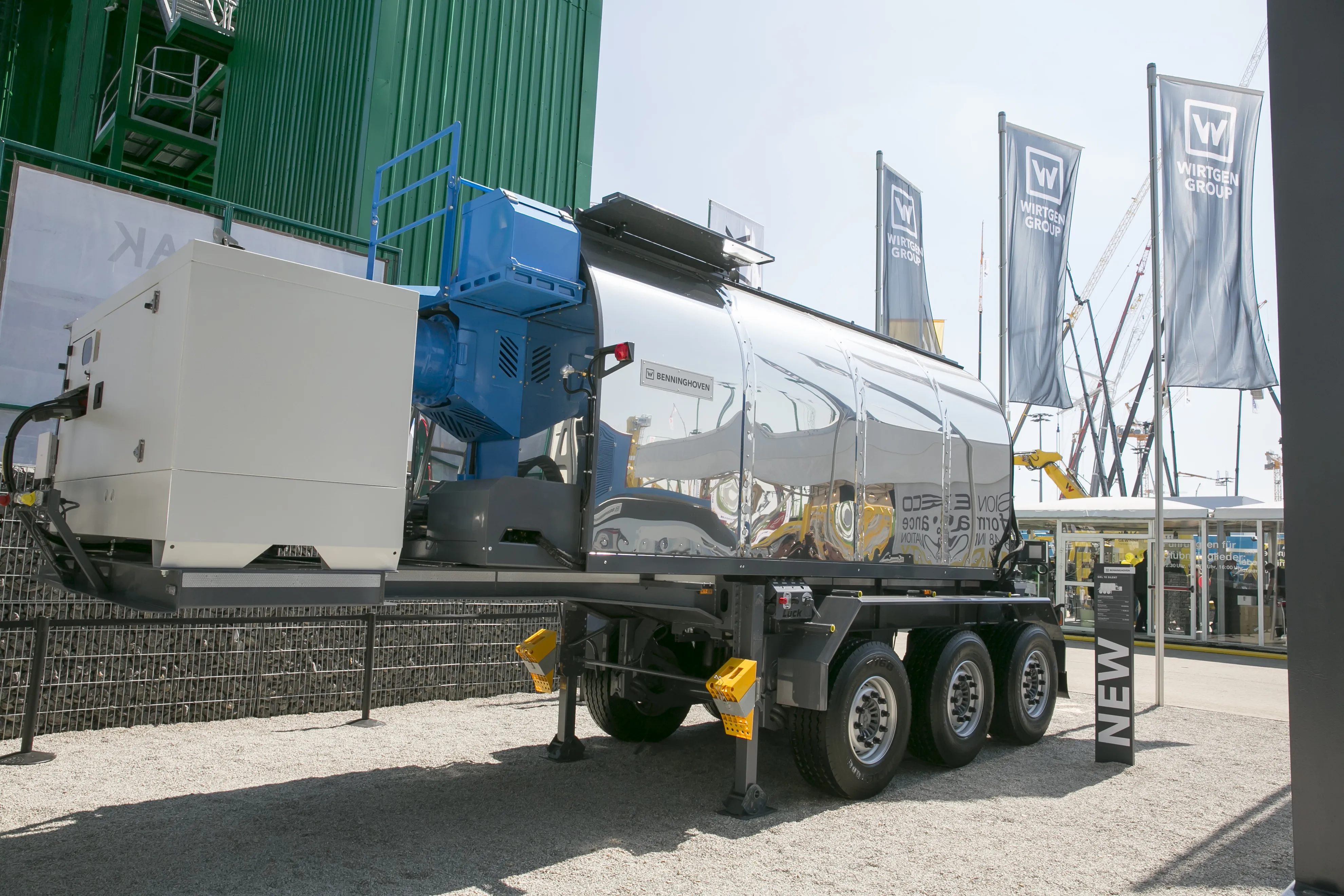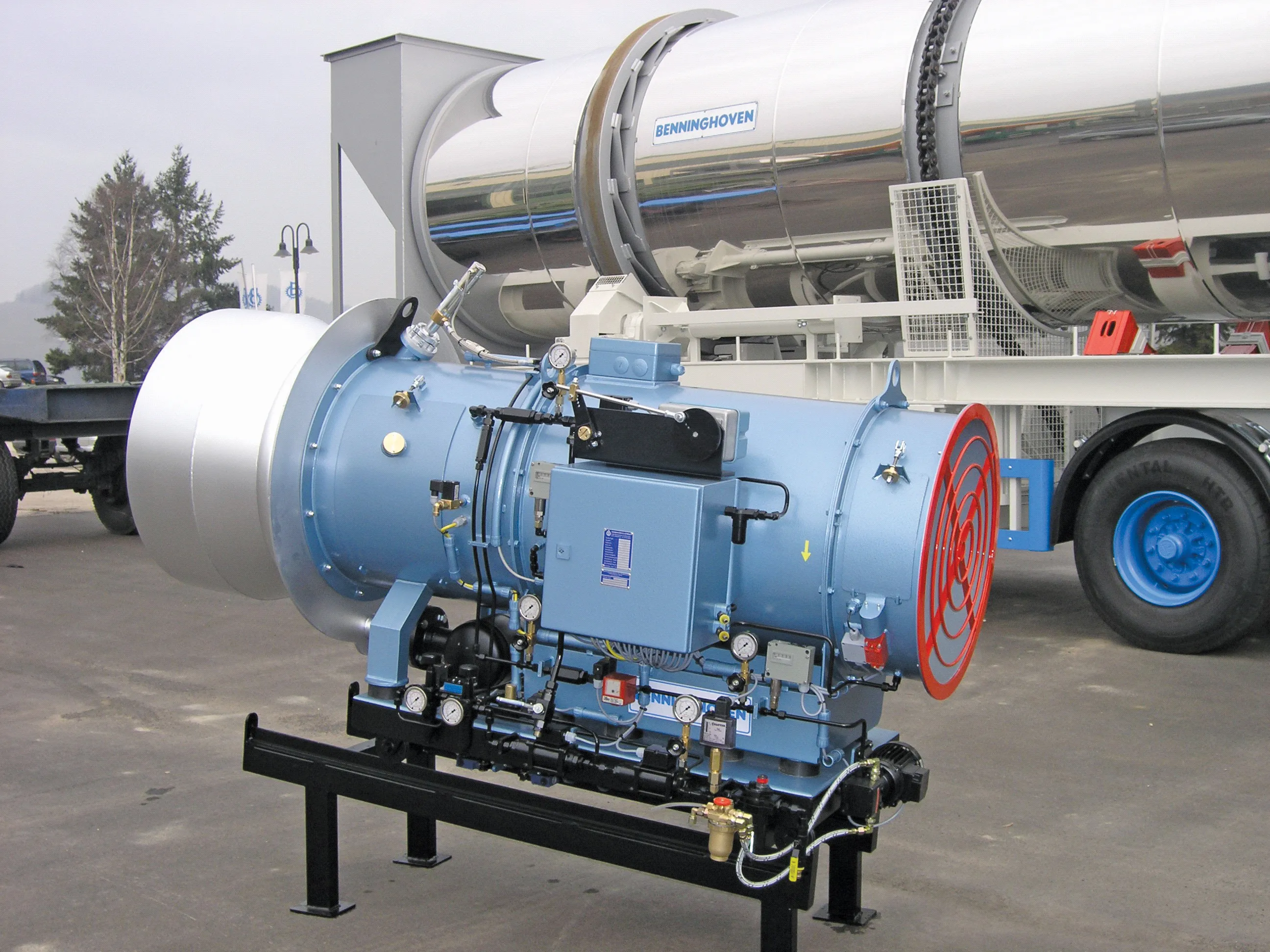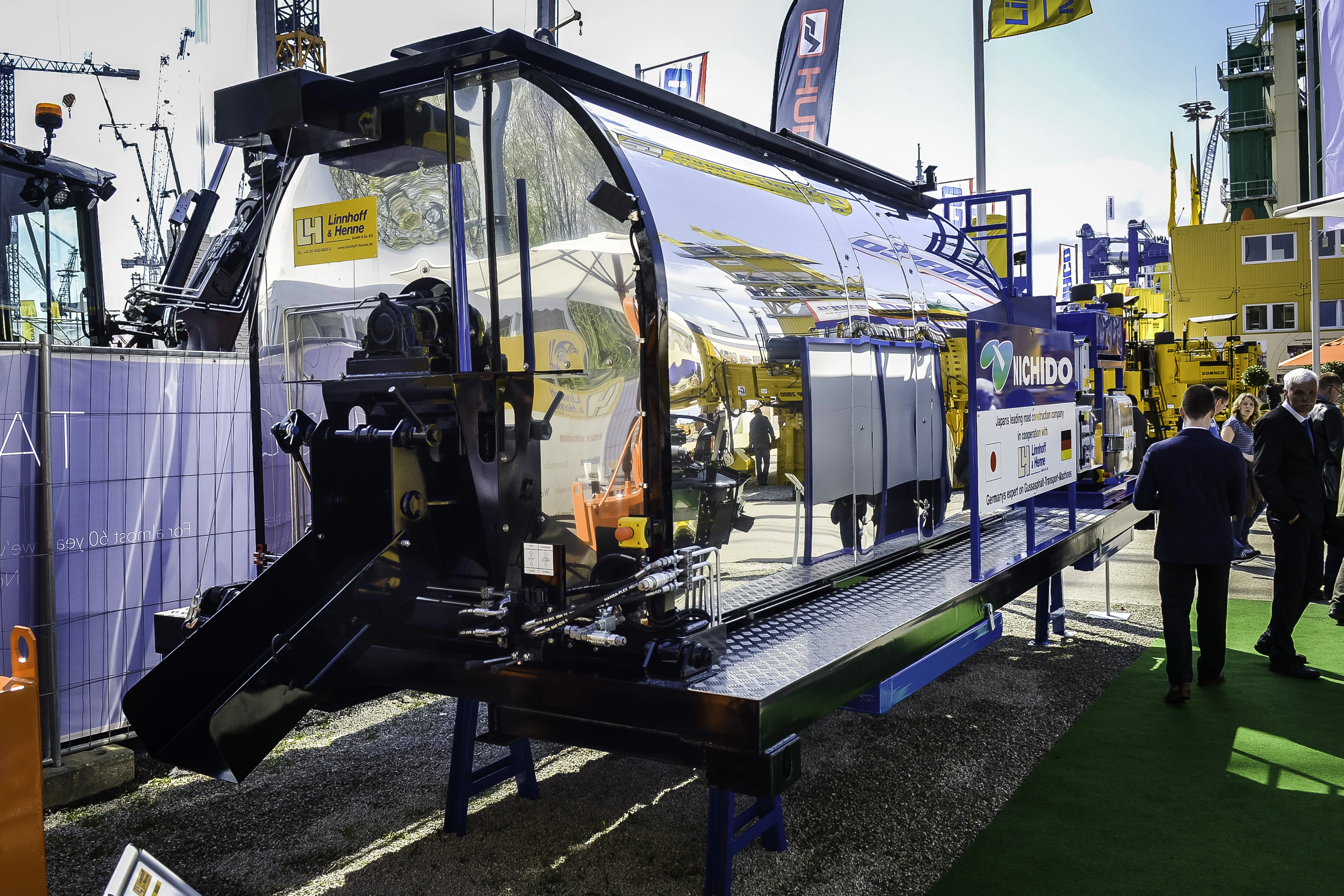
“This is the first revolution in mastic asphalt equipment for 20 years,” said Heiko Steidl, Benninghoven’s product manager for asphalt. “No-one has had any new ideas for design developments until now.”
The machine is so quiet that it was difficult to hear it at all amid the noise of bauma, ideal for projects which have to be handled outside normal working hours or for jobs in sensitive locations where potential noise pollution is a problem. The low noise levels have been achieved by switching from a hydraulic direct drive to an electric one. A generator on the back of the machine generates electricity to power the drive which then operates the agitators in the mixer.
Benninghoven supplies its new GKL Silent in sizes between 3.3m3 and 10m3 to be installed on HGVs, trailer beds or articulated trailers.









